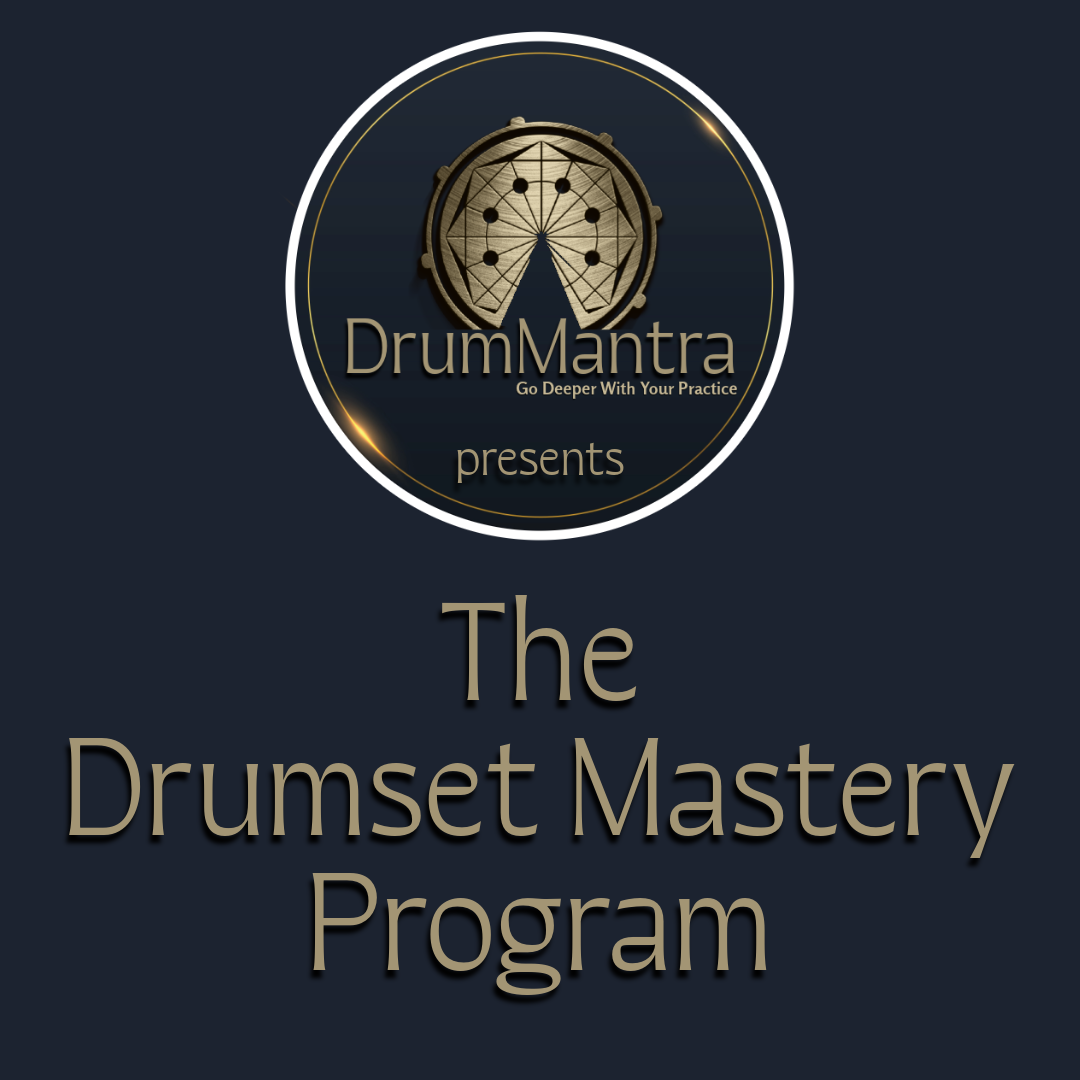Coaching Call: Finding Confidence Before a Big Gig
LISTEN TO THIS PODCAST EPISODE HERE
Performance anxiety is a deeply human experience. Whether you're stepping on stage for the first time or the hundredth, that swirling blend of anticipation, self-doubt, and adrenaline can shake even the most prepared musician. I recently had a powerful coaching session with one of my students, Michael, that reminded me just how universal these moments are—and how transformative they can be when approached with care and clarity.
The Backstory: A Big Gig on the Horizon
Michael is a dedicated drummer who has been putting in the work. He’s thoughtful, meticulous, and fully invested in growing as a musician. As part of his journey through the Drumset Mastery Program, he had been preparing for an upcoming performance with a band that clearly valued his playing and commitment. Despite their support and his own progress, he came into our session feeling unsettled.
He described how, during rehearsal, everyone else was excited about the progress the band had made. Yet, internally, Michael felt unsatisfied with his playing. He mentioned lucky recoveries during tricky parts of songs and a sense that his body wasn’t cooperating—particularly with patterns that had previously felt automatic.
This is a classic case of what I call “performance preloading”—where the mind begins to spin stories of inadequacy in anticipation of a big event. Even when external validation is there, the internal critic often speaks louder.
The Real Challenge: Belief vs. Reality
Michael’s fear wasn’t about the music itself—it was about how he felt about himself as a musician. He admitted, "I'm not confident in myself as a drummer," and that self-image was coloring everything he played. He wasn't struggling because of lack of ability. He was stuck in a loop of negative self-talk that was draining his energy and eroding his confidence.
We talked about how every performer wrestles with this duality: the external act of performance vs. the internal narrative. I told him something I often share with younger musicians:
"Being a performer is like acting like you're at a party when you're not. You’re smiling, raising your hands, engaging fully—but underneath, you’re still tracking the beat, the form, and your body. You’re never just partying. You’re always present."
The truth of performance lies somewhere between our best moments and our worst fears. The key is learning how to stay grounded in the middle.
The Prescription: Reconnection Through Practice
When a musician hits a mental wall, it’s often not about the notes—it’s about the relationship to the instrument. So, I gave Michael several action items to help shift his focus away from fear and back to joy:
Free-Form Drum Soloing (10–20 minutes daily): No songs. No charts. Just pure improvisation. The goal was to reconnect to the physical joy of playing.
Sing the Hard Parts: We talked about how singing song sections helps internalize their structure and emotion. If you can sing it, you can feel it.
Loop the Trouble Spots: Instead of trying to conquer the whole song, we focused on looping just the tricky sections, playing them slowly and consistently until they were ingrained.
Play the Full Set Daily: No more last-minute changes—just refinement. Playing the set every day built familiarity and removed surprise from the equation.
Daily Declaration of Mastery: I encouraged Michael to fill out a form I created—The Declaration of Mastery—which he could read each day as a mindset primer. It includes statements like:
"I am destined to be remembered as someone who is innovative, impactful, and inspiring."
"My belief that all people are inherently good drives my success."
"My habit of intentionality ensures every action I take is purposeful and aligned with my greater vision."
These are not affirmations of ego—they are reminders of purpose.
Beyond the Gig: The Transformation
At one point, Michael reflected on the transformation this experience was already initiating. He said he was already imagining the day after the gig—how it would feel to look back and know he pushed through. That vision is powerful.
It reminded me that the real goal isn’t just to play well—it’s to evolve.
When you approach a performance as the vehicle for your next transformation, it loses its power to overwhelm. It becomes the gateway to your next self.
As I told him: “You’re about to get over a wall. Every musician hits these. The question is—do you stop and set up camp? Or do you climb over?”
Final Thoughts: Let the Gig Launch You
Michael’s story is every drummer’s story at some point. We all face moments that test not just our hands, but our hearts and minds. These moments don’t mean we’re failing. They mean we’re growing.
So next time you feel that inner critic flare up before a gig, remember: You’ve earned the right to be there. The performance is not a test of worth. It’s a mirror of your growth.
Play the gig. Sing the hard parts. Trust your body. And most of all, go deeper.
Because on the other side of fear is the next version of you.
_____
If this blog or podcast resonated with you, it’s time to take the next step.
The Drumset Mastery Program is a year-long immersive training designed for serious drummers ready to break through limitations and elevate every aspect of their playing.
✅ Weekly curated practice sessions
✅ High-level coaching and direct feedback
✅ PDF materials & playalongs for deep internalization
✅ Mindset work to overcome fear and self-doubt
✅ Techniques for unlocking flow, clarity, and confidence
✅ Real-world growth for your drumming and your career
This is more than drum lessons—it’s a transformation.
If you're ready to go deeper, let's talk.

